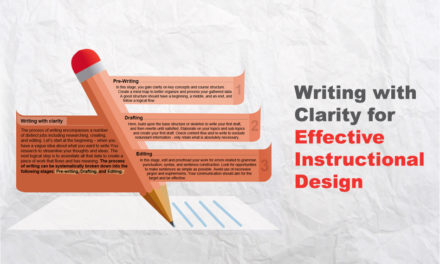Subject Matter Experts or SMEs can enable you to truly meet the business and learning objectives of your courses. SMEs are the Inside Men who typically understand the business needs of the training and the learning needs of the target audience. They are the ones who can ensure that your training design and development will achieve the desired goals.

However, the Instructional Designer (ID) and SME relationship is tender and the onus falls on the IDs to make sure it is managed well. The underlying strain is prevalent because SMEs typically are of the opinion that they can make better courses than IDs since they are the Experts of the Subject. IDs, on the contrary, realize that they are training design experts and know the best way to make a course. Hence, IDs and SMEs are typically in a battle of supremacy and want the course to shape up the way they envision it.
For the greater good of the learners, it is necessary that peace reigns over a possible battle between the IDs and SMEs. This calls for collaboration between the two. We, the IDs need the SMEs to learn first, and only then can we teach. Hence, the proactive initiatives to collaborate should come from the IDs. Here are five ways that will certainly win over your SMEs and ensure that they enjoy working with you, and in turn, enable you to design and develop the best training that you can.
1. Go Prepared for the SME Meeting
Familiarize yourself with the subject matter of the course before an SME meeting. Typically, IDs over-rely on SMEs to teach them the course’s subject or ascertain the technical accuracy of a course. The SMEs role is to provide value and quell doubts, which they cannot do if they have to teach the subject matter from scratch to begin with. As a result, SMEs may lose faith in your ability to handle the content matter and believe that they can do a better job of creating a course. However, preparing for the meeting by learning the subject can:
- Help you to gain the SMEs respect by proving that you are preparing for the subject
- Ask intelligent questions during the meeting
- Make the SME trust your decisions during course development
- Understand the rationale behind the SMEs suggestions
2. Make and Communicate Decisions
You are the captain of your course and it’s up to you to make major, rationale-based decisions to steer your course to successful completion. However, making decisions is not enough, if they involve the SME, they should be duly communicated to the SME as well. For example, if you strongly feel that a particular topic needs to come a bit earlier in the course to facilitate better flow, move it and communicate the change to the SME with a valid rationale. However, be ready to move back on your decisions if the SME provides a better rationale that trumps yours. Have an open mind and remember that the ultimate goal is to create a great learning experience for your audience.
3. Set Expectations
Set expectations with the SME right at the outset. Clearly communicate what you expect from them during course design and development. For example, as a best practice, send your SME a welcome email that not only welcomes them to the project, but also clearly outlines a task list similar to the one given here:
- Kickoff meeting to brainstorm course strategies (2 hours)
- Review the Course Design (4 hours)
- Review meeting to discuss the Course Design (30 minutes)
- Review the course draft (4 hours)
- Review meeting to discuss the course draft (1 hour)
- Do a final check of the course (4 hours)
- Hand-off meeting to sign off the course (1 hour)
4. Share Minutes of Meeting
Some of your review meetings with the SME may stretch for hours and a lot of important points will be discussed during the meetings. In fact, certain aspects of the feedback, given by the SME, could determine the success of your training. An ID, being the owner of course development, must make a note of each and every point discussed during the meeting. You should log each decision made during the meeting, and then share the log (meeting minutes) with the SME for approval. This is important to avoid miscommunication and ensures that you’re both in agreement and on the same page.
5. Respect SME’s Time
Typically, SMEs are not that dedicated to training development. They have a full-time day job and assist you in course development as an extended responsibility. Hence, their time is like gold dust. Preserve and use it properly by:
- Studying the subject of the course as much as you can to resolve your queries
- Collating queries into logical groups, and then setting up periodical meetings to resolve those queries; for example, once a week or once in two weeks
- Adhering to the expectations set at the beginning of course development
- Allocating sufficient time for the SME to review your course
- Creating and sharing an accurate project development plan that highlights the dates set aside for the SME to review the course
Here is an infograph that summarizes the concepts from this post.




